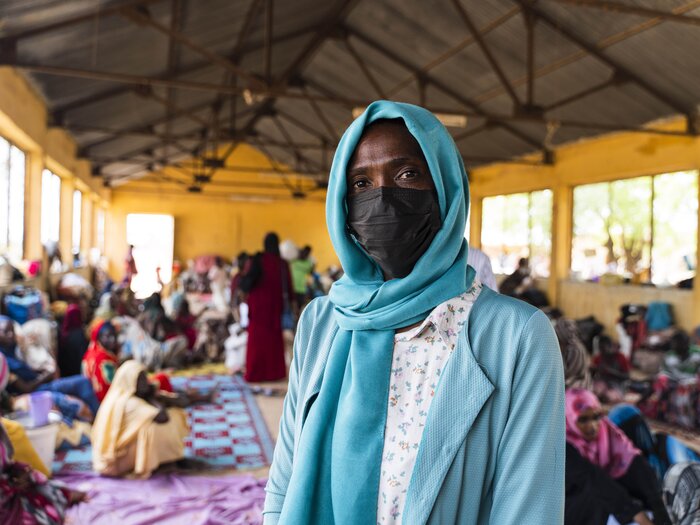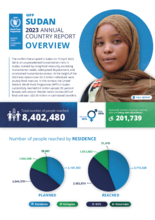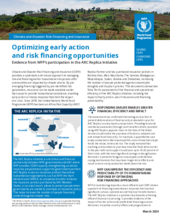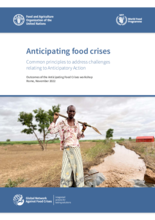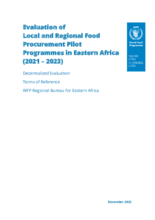Sudan
- Nearly 18 million
- people are facing acute food insecurity
- 7.7 million
- people displaced (inside and outside Sudan) since April 2023
- 48.6 million
- population
The humanitarian situation in Sudan is teetering on the brink of catastrophe after conflict erupted across the country in mid-April 2023. Since 2019, the number of people facing acute food insecurity has more than tripled from 5.8 million to nearly 18 million. Nearly 5 million of these are in emergency levels of hunger.
The key drivers of the worsening food security situation include intensified conflict and growing intercommunal violence, economic crisis, soaring prices of food, fuel and essential goods, and below average agricultural production.
Sudan faces the worst displacement crisis in the world, as the conflict continues to force millions of people from their homes. This influx of displaced people puts severe pressure on already scarce resources, threatening to destabilize the entire region unless urgent action is taken to prevent the crisis from spiralling out of control.
The conflict has pushed the banking sector into a severe crisis. Unavailability of, or limited access to, banking services is leading to widespread cash shortages nationwide. Cash-strapped Sudanese are struggling to buy essential items as the inflation rate soars. Staple grain prices are expected to rise to 200 percent above last year.
Despite widespread insecurity and access constraints, WFP has delivered life-saving food and nutrition assistance to over 6.5 million people since the start of the conflict – including in some of the most hard-to-reach areas in the Darfur region.
What WFP is doing in Sudan
-
Food assistance
-
WFP provides food assistance as a first lifeline and works to ensure that people affected by shocks have access to food. Vulnerable refugees, internally displaced people, returnees and shock-affected resident communities receive either food or cash, to provide choice. Through Food Assistance for Assets programmes, communities receive food or cash to fill their immediate food gap. In return, community members work on projects including building or restoring infrastructure like roads or schools.
-
Nutrition
-
WFP aims to prevent and treat moderate acute malnutrition in emergency and recovery situations, reduce stunting (low height for age due to chronic malnutrition) and prevent mineral and vitamin deficiencies through nutrition-specific initiatives. WFP provides ready-to-use-supplementary food to children under 5 and pregnant or nursing mothers who have been diagnosed with MAM. In collaboration with the private sector, WFP launched VITAMINO, a micronutrient product that is distributed to internally displaced people, refugees and vulnerable residents, and that is sold through retail outlets to reach urban populations. WFP also supports national efforts to promote consumption of fortified foods and provides technical assistance for the development of relevant legislation and standards.
-
Food systems and safety nets
-
WFP helps to improve food systems and safety nets to strengthen the resilience of food-insecure families. Through training in vocational skills, people are able to improve their livelihood opportunities and increase their income. WFP also supports farmers in accessing markets, while improving irrigation systems to boost agricultural productivity.
-
Post-harvest losses
-
Farmers in Sudan lose an estimated 30 percent of their crops after harvest, often due to improper storage. To reduce post-harvest losses, WFP is promoting the use of hermetic storage bags and airtight silos among smallholder famers, thereby creating a market demand. Farmers improve their profit margins, with more of their crops safely stored for selling on the market. Meanwhile, WFP is also engaging the private sector to make the hermetic bags readily available on the market at reasonable prices, which also helps to boost the local economy.
Sudan news releases
Go to pagePartners and donors
Find out more about the state of food security in Sudan
Visit the food security analysis pageContacts
Office
653 A Block 68 Arkawit, PO Box 913
Khartoum
Sudan

